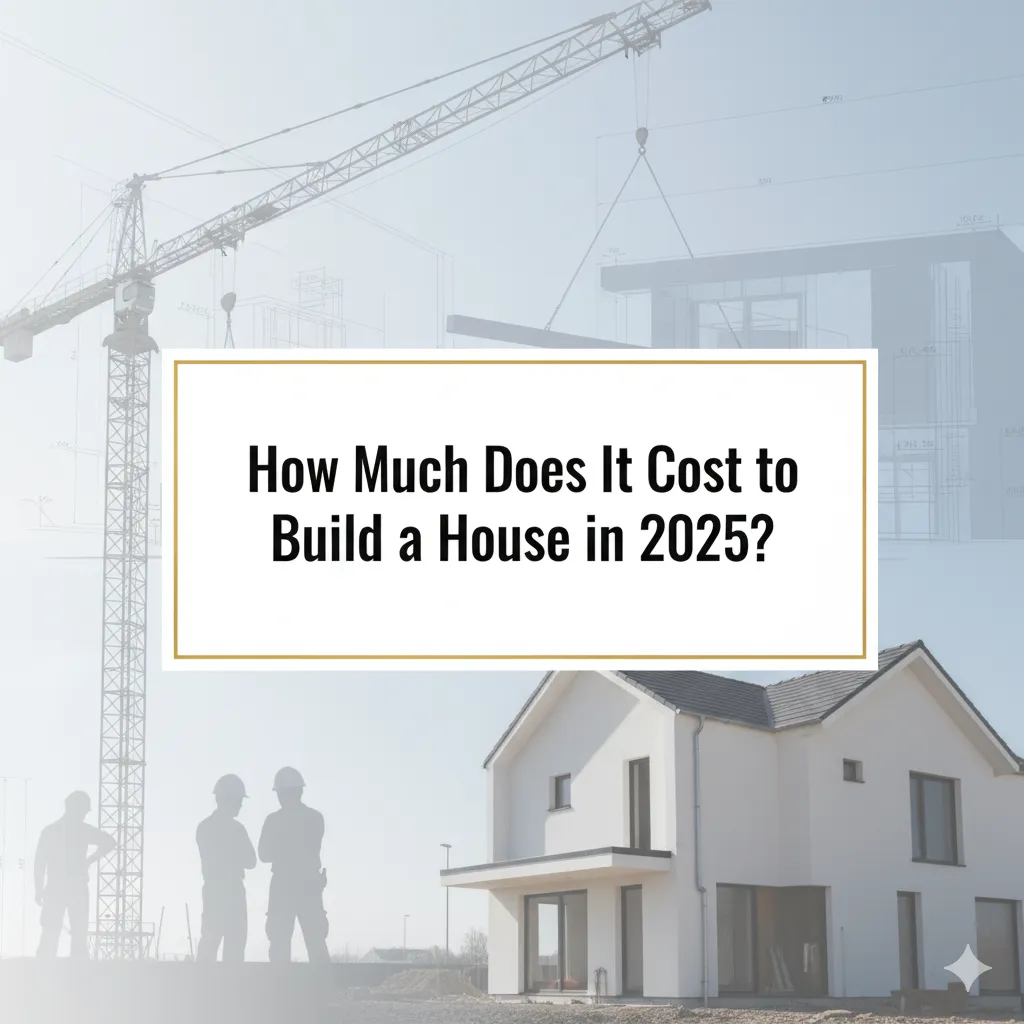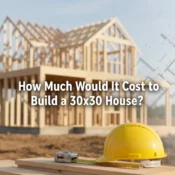
How Much Does It Cost to Build a House in 2025?
Building a house is one of the most exciting yet complex investments a homeowner can make. As we enter 2025, construction costs have evolved due to inflation, supply chain shifts, and modern building standards. Whether you’re planning your first home or upgrading to your dream space in Fremont, NE, understanding what drives home-building expenses is essential. Partnering with the Best House Construction Contractor in Fremont ensures your project stays within budget while maintaining quality and efficiency.
In this article, we’ll explore the factors influencing home construction costs in 2025, average prices per square foot, budgeting strategies, and expert insights from top professionals.
1. Understanding the Current Housing Market in 2025
The U.S. housing market has seen notable shifts over the past few years. Material costs have stabilized after pandemic disruptions, but labor shortages and design trends continue to affect overall expenses. In Fremont, NE, the demand for custom-built homes and energy-efficient designs has increased, making it crucial to work with the Best House Construction Contractor in Fremont who understands local regulations and market dynamics.
In 2025, average construction costs nationwide range between $160 and $300 per square foot, depending on the complexity of the design, materials, and location.
2. Average Cost to Build a House in Fremont, NE (2025 Estimates)
Let’s break down estimated construction costs for different home sizes in Fremont:
| Home Size | Estimated Cost Range (2025) |
|---|---|
| 1,000 sq. ft. | $160,000 – $210,000 |
| 1,500 sq. ft. | $240,000 – $315,000 |
| 2,000 sq. ft. | $320,000 – $420,000 |
| 2,500 sq. ft. | $400,000 – $525,000 |
| 3,000 sq. ft. | $480,000 – $630,000 |
These numbers vary based on factors such as foundation type, materials, design complexity, and labor rates. Consulting the Best House Construction Contractor in Fremont gives you an accurate local estimate and ensures cost efficiency throughout the project.
3. Key Factors That Affect the Cost of Building a House
a. Location
Land costs and zoning requirements vary across neighborhoods. Fremont offers affordable land compared to larger metro areas, but utility access, permits, and site preparation still influence final costs.
b. Home Design & Size
Custom designs are more expensive than pre-drawn plans. The more complex your architecture — including rooflines, windows, and specialty rooms — the higher your labor and material costs.
c. Materials
Material quality heavily affects total costs. In 2025, the prices of lumber, steel, and eco-friendly materials are relatively stable but remain a major portion of the budget.
d. Labor
Skilled labor is still in high demand. Partnering with the Best House Construction Contractor in Fremont ensures access to reliable, experienced workers who maintain high-quality standards.
e. Finishes & Fixtures
High-end finishes such as granite countertops, hardwood flooring, and custom cabinetry can significantly raise costs. Choosing mid-range alternatives can balance aesthetics and budget.
f. Permits & Regulations
Local building codes, permits, and inspections add administrative costs. Fremont’s city guidelines emphasize energy efficiency and safety, which your contractor will manage on your behalf.
4. Breakdown of Home Construction Costs
A typical cost breakdown for building a new home in 2025 looks like this:
| Category | Percentage of Total Cost |
|---|---|
| Land & Site Work | 10–15% |
| Foundation | 8–10% |
| Framing | 15–20% |
| Exterior Finishes | 10–15% |
| Interior Finishes | 25–30% |
| Mechanical Systems (HVAC, plumbing, electrical) | 10–15% |
| Permits & Miscellaneous | 5–10% |
Each phase plays a crucial role in determining your overall expenditure. Working with an experienced contractor ensures that no area of the budget spirals out of control.
5. Energy Efficiency and Modern Building Trends
In 2025, sustainability isn’t optional — it’s a priority. Homeowners in Fremont are opting for solar panels, energy-efficient HVAC systems, smart lighting, and insulated windows. While these features increase initial costs by around 5–10%, they lead to significant long-term savings on utilities and maintenance.
6. Smart Budgeting Tips for Home Construction
- Set a realistic budget early – Include a 10–15% contingency for unexpected costs.
- Prioritize essential features – Focus on structure and quality before luxury finishes.
- Get multiple quotes – Always compare bids from different contractors.
- Work with trusted professionals – The Best House Construction Contractor in Fremont helps you avoid costly mistakes.
- Track progress weekly – Regular updates ensure the project stays on budget and on schedule.
7. Financing Options for Building a Home
a. Construction Loans
These short-term loans cover building expenses and convert to a mortgage once construction is complete.
b. FHA Construction Loans
Ideal for first-time homeowners who meet certain credit and income requirements.
c. Owner-Builder Loans
If you act as your own general contractor, you can secure this loan — though it’s best for experienced builders.
d. Conventional Loans
Best for those who already own land and have strong credit history.
8. The Role of Contractors in Cost Control
A good contractor is not just a builder — they’re a cost manager. The Best House Construction Contractor in Fremont ensures proper resource allocation, negotiates material rates, manages timelines, and oversees every subcontractor to prevent delays or waste. This partnership directly influences your overall project success.
9. Common Mistakes Homeowners Make When Building
- Underestimating total cost – Forgetting soft costs like landscaping or interior décor.
- Changing plans mid-project – Design changes increase expenses and delay schedules.
- Choosing the cheapest bid – Low bids often compromise material quality or labor expertise.
- Ignoring local regulations – Can lead to costly rework or fines.
- Not reviewing contracts carefully – Ensure terms, warranties, and deliverables are clearly defined.
10. Hidden Costs You Should Prepare For
- Utility connections (gas, electricity, water)
- Driveway and sidewalks
- Landscaping and fencing
- Appliances and fixtures
- Permit revisions and inspections
Having a transparent agreement with your contractor minimizes these surprises.
11. How Technology is Reducing Construction Costs in 2025
Modern technology has revolutionized home building. 3D design software, automated cost calculators, and project management apps enable greater precision and efficiency. Contractors now use drones for site surveys and AI tools for scheduling and estimating — all of which lower overall costs and timelines.
12. Comparing Custom vs. Semi-Custom Homes
- Custom Homes: Fully personalized, higher costs but complete design control.
- Semi-Custom Homes: Predefined floor plans with customization options, cost-effective and quicker to build.
If you want both flexibility and affordability, the Best House Construction Contractor in Fremont can guide you toward the best option for your budget and lifestyle.
13. How Long Does It Take to Build a House in 2025?
On average, a standard single-family home takes 8–12 months to complete, depending on weather, materials, and complexity. Custom homes with luxury features may take longer. Early planning and efficient coordination with your contractor ensure timely delivery.
14. Maximizing Value with Professional Expertise
Hiring professionals ensures your investment yields maximum value. From selecting durable materials to optimizing space and functionality, a top-tier contractor helps balance beauty, practicality, and cost-efficiency. The Best House Construction Contractor in Fremont will also provide warranty coverage and post-construction support.
15. Future Trends in Home Construction
- Smart home automation systems
- Prefabricated and modular builds
- Sustainable construction materials
- Open floor plans and multipurpose spaces
- AI-assisted project planning
These innovations will continue shaping the home-building landscape beyond 2025.
Conclusion
So, how much does it cost to build a house in 2025? It depends on size, materials, and customization — but on average, expect $160 to $300 per square foot in Fremont, NE. The key is careful planning, clear communication, and the right team.
When you partner with the Best House Construction Contractor in Fremont, you gain access to expert planning, transparent pricing, and superior craftsmanship that bring your dream home to life.
Frequently Asked Questions (FAQs)
1. What is the average cost to build a home in Fremont, NE, in 2025?
Around $160–$300 per square foot, depending on design and materials.
2. How much does it cost to build a 2000 sq. ft. house?
Expect $320,000 to $420,000 on average in Fremont, NE.
3. Is it cheaper to buy or build in 2025?
Building offers customization, while buying is faster. Costs are comparable, but building gives more value in the long run.
4. What adds the most cost to home construction?
Framing, finishes, and mechanical systems typically consume the most budget.
5. How can I save money during construction?
Plan ahead, avoid mid-project changes, and work with a reliable contractor.
6. How long does it take to build a house in 2025?
Most homes take 8–12 months from start to finish.
7. Are eco-friendly homes more expensive?
Initially yes, but they save money over time through lower energy bills.
8. Do I need insurance during construction?
Yes, both builder’s risk and liability insurance are recommended.
9. How do I choose the right contractor?
Check reviews, portfolios, and licenses. The Best House Construction Contractor in Fremont is always a great start.
10. What’s the first step in starting a home construction project?
Get a professional consultation and cost estimate based on your lot, design, and budget.
All Categories
Recent Posts
Can You Build a House for $500k?
Can You Build a House for $80,000?
How Much Would It Cost to Build a 30×30 House?
Tags
MON-SAT 8:00-9:00
+91 69 863 6420



